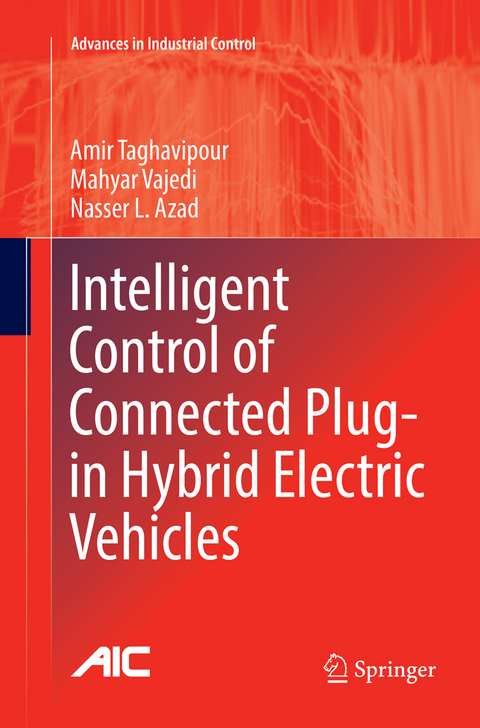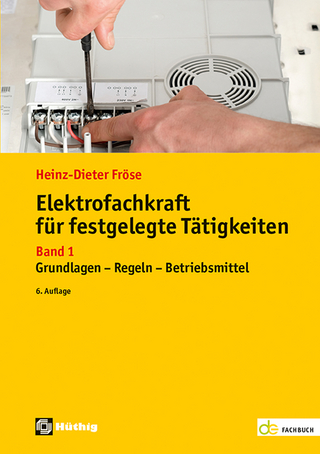
Intelligent Control of Connected Plug-in Hybrid Electric Vehicles
Springer International Publishing (Verlag)
978-3-030-13101-2 (ISBN)
Using the look-ahead trip information, the authors of the book propose intelligent optimal model-based control systems to minimize the total energy cost, for both grid-derived electricity and fuel. The multilayer intelligent control system proposed consists of trip planning, an ecological cruise controller, and a route-based energy management system. An algorithm that is designed to take advantage of previewed trip information to optimize battery depletion profiles is presented in the book. Different control strategies are compared and ways in which connecting vehicles via vehicle-to-vehicle communication can improve system performance are detailed.
Intelligent Control of Connected Plug-in Hybrid Electric Vehicles is a useful source of information for postgraduate students and researchers in academic institutions participating in automotive research activities. Engineers and designers working in research and development for automotive companies will also find this book of interest.
Advances in Industrial Control reports and encourages the transfer of technology in control engineering. The rapid development of control technology has an impact on all areas of the control discipline. The series offersan opportunity for researchers to present an extended exposition of new work in all aspects of industrial control.
Amir Taghavipour received his BASc. and MASc. degrees in Mechanical Engineering from Sharif University ofTechnology, Tehran, Iran in 2007 and 2010, respectively. He obtained his PhD at the Systems Design Engineering Department, University of Waterloo in 2014 on design and implementation of a real-time optimal energy management systems for plug-in hybrid electric vehicles in collaboration with Toyota Technical Centre North America and MapleSoft Canada. He is currently an Assistant Professor with the Department of Mechanical Engineering, K. N. Toosi University of Technology. His research mainly focuses on model-based and real-time controllers design for Mechatronic and sustainable energy systems, especially energy management systems for full electric, hybrid (electric and hydraulic), plug-in hybrid and fuel cell-powered vehicles. His research interests include intelligent hybrid and electric vehicles, automotive systems control, modeling and prototyping, model predictive control, nonlinear and hybrid systems, and optimization approaches. Mahyar Vajedi received the B.Sc. and M.Sc. degrees in mechanical engineering from Sharif University of Technology; and the PhD degree in Systems Design Engineering from University of Waterloo. He is currently a Postdoctoral Fellow at the Smart Hybrid and Electric Vehicle Systems Laboratory, University of Waterloo. He is the author of several published papers. His research interests include intelligent vehicle control systems, such as eco-cruise controllers, adaptive cruise controllers, and intelligent energy management systems for electric propulsion vehicles. Nasser L. Azad is currently an Associate Professor with the Department of Systems Design Engineering, University of Waterloo. His research program operates at the intersection of advanced vehicle electrification and vehicle communication technologies, where he specializes in the development of intelligent automotive controllers that can leverage information provided by emerging ITS, GPS, GIS, and advanced wireless technologies to optimize key performance characteristics, such as fuel economy and emission reduction, in real time. The multidisciplinary nature of his research has allowed him to establish strong collaborative networks with researchers from universities in Europe, Asia, and the U.S., as well as with world-leading car manufacturers. He received an Early Researcher Award in 2015.
Introduction.- Related Work.- High-Fidelity Model.- Part I: Energy Management Approach.- Non-linear Model Predictive Control.- Multi-parametric Predictive Control.- Control-relevant Parameter Estimated Strategy.- Part II: Smart Ecological Supervisory Controls.- Real-time Trip Planning.- Route-based Supervisory Controls.- Ecological Cruise Control.- Conclusions.
| Erscheinungsdatum | 23.10.2019 |
|---|---|
| Reihe/Serie | Advances in Industrial Control |
| Zusatzinfo | XIV, 198 p. 128 illus., 116 illus. in color. |
| Verlagsort | Cham |
| Sprache | englisch |
| Maße | 155 x 235 mm |
| Gewicht | 448 g |
| Themenwelt | Technik ► Elektrotechnik / Energietechnik |
| Technik ► Fahrzeugbau / Schiffbau | |
| Schlagworte | Connected Vehicle • Ecological Cruise Control • energy efficiency • Hardware-in-the-Loop Testing • Intelligent Energy Management System • Look-ahead Trip Information • Model Predictive Control • Multilayer Intelligent Control • Plug-in Hybrid Electric Vehicle • Route-based Energy Management • trip planning |
| ISBN-10 | 3-030-13101-7 / 3030131017 |
| ISBN-13 | 978-3-030-13101-2 / 9783030131012 |
| Zustand | Neuware |
| Haben Sie eine Frage zum Produkt? |
aus dem Bereich


